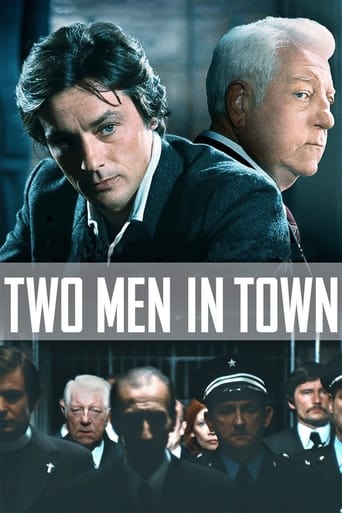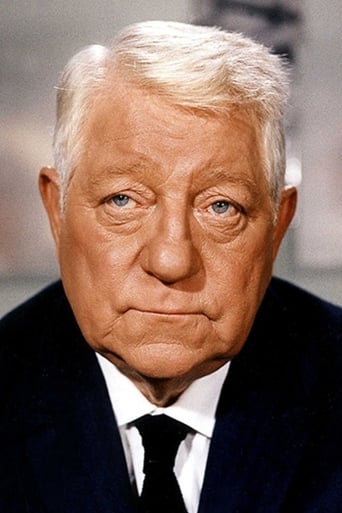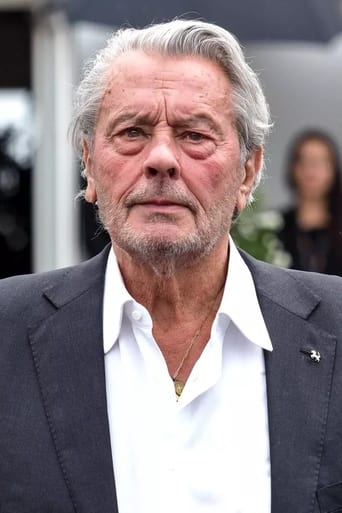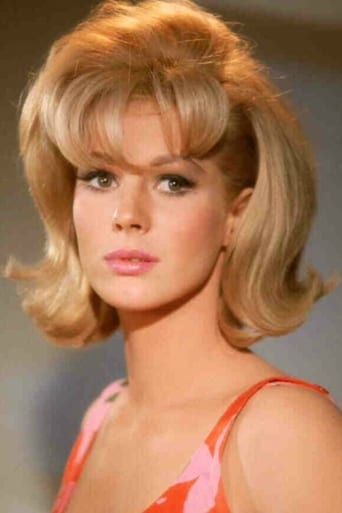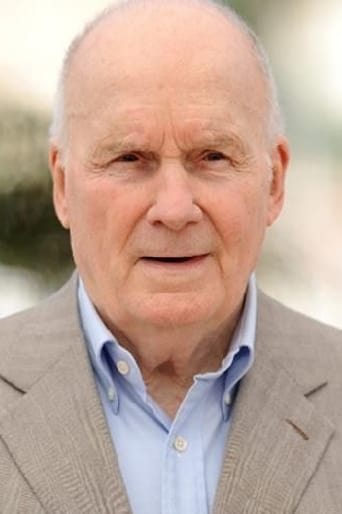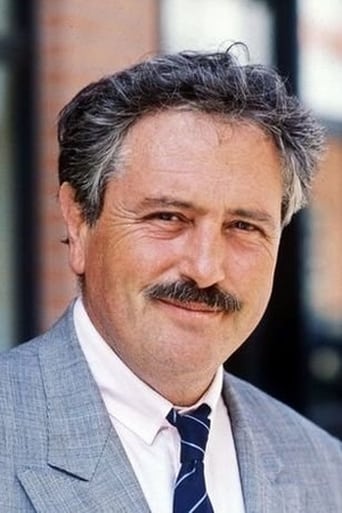Hellen
I like the storyline of this show,it attract me so much
ReaderKenka
Let's be realistic.
CommentsXp
Best movie ever!
MartinHafer
This is an interesting film in structure, as the main conflict doesn't even present itself until almost 40 minutes into the film. Up until then, it's a very nice story about an ex-con (Alain Delon) and his good friend--a social worker who befriended him in prison and has worked to help rehabilitate him (Jean Gabin). However, even though Delon is doing a great job on his parole (even after tragedy strikes)and is living an honest life, an old cop who arrested him a decade earlier has decided that it's his mission to PROVE that Delon didn't change and is just another con waiting to show his true colors! And so, doggedly, the cop seems determined to push Delon until he forces his to turn bad.While the parallels are not perfect and the setting has been updated to modern France, this sure seemed like a reworking of the classic Victor Hugo story "Les Misérables". Like the leading man from the novel, Jean Valjean, Delon's character has changed after leaving prison and is committed to doing right. And, like Javert, the cop who suddenly enters his life will stop at nothing to prove that a man like Delon CAN'T change despite all appearances to the contrary. So, the cop harasses the man's employer, his girlfriend...any one and everyone. He brings Delon in for interrogations and pushes the man unmercifully--so much so that you assume sooner or later Delon will snap. What happens next is a bit of a shock--and makes for an exciting finale and a very compelling film.It's interesting, by the way, that the bad cop is not the only thing in the system that conspires to keep criminals criminals. Other than Gabin, the rest of the prison officials in the film seem like reactionaries--who unintentionally perpetuate the problems through their stupidity. While this is somewhat of an over-simplification, I like this angle, as prison officials often do make the problems worse (I used to work with the prison system like Gabin's character and was amazed at how corrupt or dumb some of these men were--including come guards who were simply sadists). It's a novel approach (aside from the Hugo novel) and made the film quite compelling. Plus, it humanized Delon so much that you hurt for him and really were rooting for him throughout the film.
Mark
There are only two reasons to see this film: 1. Jean Gabin and 2. An almost flawless example of a certain zeitgeist of the early 70:s. There has been several films made in several countries around the basic theme: in an evil system it's the oppressors that are responsible for creating criminals, who are actually themselves victims of a faulty society, therefore criminals should be set free and the system overturn - a new, better system shall come in which, by default, there will be no crime because we won't have any cause for it. All based on a Marxist conception of criminality in modern society that, by the way, still after 40 years rules among most criminologists in western Europe. All this is handed down to us by an extremely heavy-handed director (Giovanni is responsible for writing some of the best scripts in French cinema and should have left directing to directors), complete with lines such as "People will march on the streets!" and Gabin's final judgment on society "It's a killing machine". An utterly unbelievable criminal-turned-angel Delon tries to go straight after a 10-year sentence but the effort is shattered by an utterly unbelievably evil police detective. All this is witnessed by an elderly parole officer (Gabin) with a heart of gold. The plot is predictable, the end inevitable, and only the worst Hollywood-moralizing studio efforts are better at hammering a message down your throat. Here the message seems to be political while in Hollywood it's often rather religious, but the technique is the same, and strangely, you can hardly miss the Devil and God working around a hapless Man even here. Unless you're a fan of the great Jean Gabin, it's a waste of time.
Prof-Hieronymos-Grost
Germaine Cazeneuve (Jean Gabin) is an educator of delinquents and state prisoners, his job is to help them reform and adjust to a new life outside of prison. He pleads for leniency in the case of safe cracker Gino Strabliggi (Alain Delon) who is up for parole after 10 years inside, against their better judgement the parole board agrees to Cazeneuve's request on condition that he takes responsibility for Strabliggi. Gino, as an ex con, is forced by French law to take residence anywhere but in a city and so he settles with his young wife in the country, where fate turns against him, as first his wife is killed, then he is hounded by his former crime gang to return to his former lifestyle and also one of the arresting officers from his case years previously, the now chief inspector Goitreau is in charge of the area and has a grudge against him and becomes even more suspicious when he finds out Gino's new girlfriend Lucie is working in the local bank With the help of his now good friend Cazeuenve and his new girlfriend Lucie (Mimsy Farmer) he tries to battle his demons and fight against the troublesome cop.Jose Giovanni (born Joseph Damiani) is perhaps best known as a writer of some renown in France, in films like Melvilles Le Deuxième soufflé, and Classe tous risques (1960) his writings usually centering on crime, an area he knew only too well, as he was on death row in France from 1948-1956 before gaining a Presidential pardon. While inside he penned the script for Le Trou, French slang for prison literally meaning "The Hole", a script that would gain him one of his first steps into the film industry, when it was filmed by Jacques Becker, who turned out one of the best prison films ever made. Deux hommes dans la ville is a film that was obviously close to his heart as it doesn't reveal its true motives until the end, where we are treated to an emotional climax on death row, with the usual last minute wait on a pardon. The film itself is an excellent character study, made all the better by two fine performances by the Gabin and Delon. Gabin giving us a truly world weary performance, his voice-over at times heartbreaking, as he comes to terms with the injustices he encounters on a daily basis. Delon portrays the truly reformed character Gino, struggling against the injustice of a criminal and legal system that still lives in the dark ages with a deliciously watchable class. The film struggles at times, especially early on to keep cohesion, Giovanni seemingly trying to fit to many characters and too much plot into a short time span, its almost like this film should have had a running time of 4 hours and he struggled to leave out areas that were obviously dear to his heart. Still though it's a classy film, beautifully filmed and with a truly epic and emotive score by Philippe Sarde. Giallo queen Farmer is also pretty good and there a very charismatic cameo from Gerard Depardieu as a cocky young criminal, who's not that impressed by Gino's past glories.
Aleluya
(SPOILERS) This is the story of a man (Delon) who commits a mistake (a bank robbery) and, although being an excellent person, is never given a second chance by so-called justice. The film is slow (but certainly not boring) as we assist to the development of the character; we see him recovering from 10 years of prison after the bank assault. We also see his love for a first woman, who dies in a car crash (note that nobody actually goes to jail for that "accident" -it was during a car race, and Delon and his wife find themselves right into it without not even knowing it-). After that, he recovers and moves to Montpellier, always under the assistance of his protector (and narrator of the film), where he finds a good job and falls in love with a wonderful girl who happens to work in a bank. Misluck follows then. A "fair" cop who was in his first arrest ten years ago finds him in Montpellier and immediately believes that he is running after mischief. As the cop harasses him (and his wife and his friends) more and more, and tries to link him with another Bank robbery that he has definitely not committed, Delon founds himself hopelessly trapped in the net of justice. Exhasperated, Delon finally kills the cop in the wave of rage (quite understandably) and predictably he is sent to jail and sentenced to death. Death sequence that follows (operated by the all-times star french guillotine) is tactful and strikingly hard, and (thankfully) rather short. The film is quite surprising and the sequence of acts matches like an infernal machine of doom: he main character cannot escape but can see it approaching (so can we). All in all is a perfect rebuke to the hypocrisy of the so-called Justice. A must watch.
